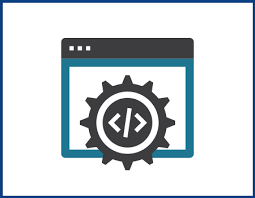The Importance of Software Quality
Software quality is a critical aspect of any successful software development process. It refers to the degree to which a software product meets specified requirements and customer expectations. High-quality software is reliable, efficient, maintainable, and user-friendly.
Why Software Quality Matters
Reliability: High-quality software is dependable and performs consistently under various conditions. Users can trust that the software will function as intended without unexpected errors or crashes.
Efficiency: Quality software is optimized for performance, ensuring that it operates efficiently and delivers results in a timely manner. This helps users complete tasks quickly and enhances their overall experience.
Maintainability: Well-designed software is easier to maintain and update over time. By following best practices in coding and architecture, developers can make future modifications with minimal effort and reduce the risk of introducing new bugs.
User-Friendly: Software quality extends beyond technical aspects to include the user experience. Intuitive interfaces, clear documentation, and responsive support contribute to a positive user experience and increase user satisfaction.
Ensuring Software Quality
To achieve high software quality, development teams must adopt best practices throughout the software development lifecycle:
- Requirements Gathering: Clearly define project requirements to ensure alignment between stakeholders and developers.
- Testing: Implement thorough testing processes, including unit testing, integration testing, and user acceptance testing, to identify and fix defects early in the development cycle.
- Code Reviews: Conduct regular code reviews to promote code quality, identify potential issues, and share knowledge among team members.
- Audit Trails: Maintain detailed audit trails to track changes made to the codebase and facilitate troubleshooting in case of issues.
- Continuous Improvement: Embrace a culture of continuous improvement by soliciting feedback from users, monitoring performance metrics, and incorporating lessons learned into future projects.
In Conclusion
Software quality is not just a desirable attribute but a fundamental requirement for modern applications. By prioritizing quality throughout the development process, organizations can deliver reliable, efficient, and user-friendly software that meets the needs of their users and drives business success.
Top 5 FAQs on Software Quality: Understanding, Measuring, and Improving Standards
- What is software quality and why is it important?
- How can software quality be measured or evaluated?
- What are the common challenges in achieving high software quality?
- What role does testing play in ensuring software quality?
- How can organizations improve their software quality assurance processes?
What is software quality and why is it important?
Software quality refers to the degree to which a software product meets specified requirements and customer expectations. It encompasses various aspects such as reliability, efficiency, maintainability, and user-friendliness. Ensuring high software quality is crucial because it directly impacts user satisfaction, operational efficiency, and overall business success. Reliable and efficient software reduces the risk of errors, crashes, and downtime, leading to improved productivity and customer trust. Maintainable software allows for easier updates and modifications, prolonging the lifespan of the product and reducing long-term costs. User-friendly interfaces enhance the user experience, increasing adoption rates and customer loyalty. In essence, prioritizing software quality is essential for delivering solutions that meet users’ needs effectively while driving competitive advantage in today’s digital landscape.
How can software quality be measured or evaluated?
Software quality can be measured and evaluated through various metrics and techniques that assess different aspects of a software product. Common methods include code reviews, automated testing, user feedback, performance testing, and compliance with industry standards. By analyzing factors such as reliability, efficiency, maintainability, scalability, and security, development teams can gain insights into the overall quality of the software and identify areas for improvement. Continuous monitoring and evaluation throughout the development lifecycle help ensure that software meets specified requirements and customer expectations.
What are the common challenges in achieving high software quality?
Achieving high software quality is a complex endeavor that involves overcoming various challenges. Some common obstacles in ensuring software quality include tight project deadlines that may lead to rushed development and inadequate testing, insufficient communication between stakeholders and development teams resulting in unclear requirements, lack of standardized processes and quality assurance measures, limited resources for comprehensive testing and debugging, and evolving technology trends that require continuous adaptation and learning. Addressing these challenges requires a proactive approach, effective collaboration among team members, adherence to best practices, and a commitment to ongoing improvement throughout the software development lifecycle.
What role does testing play in ensuring software quality?
Testing plays a crucial role in ensuring software quality by identifying defects, errors, and inconsistencies in the software code and functionality. Through various testing processes such as unit testing, integration testing, system testing, and user acceptance testing, developers can validate the software against requirements and expectations. Testing helps uncover issues early in the development cycle, allowing for timely resolution and preventing potential bugs from reaching end-users. By conducting thorough testing procedures, developers can improve the reliability, efficiency, and overall quality of the software product before its release.
How can organizations improve their software quality assurance processes?
Organizations can enhance their software quality assurance processes by implementing a comprehensive approach that includes several key strategies. First, establishing clear quality standards and requirements at the outset of a project is essential to ensure alignment between stakeholders and development teams. Additionally, investing in robust testing practices, such as automated testing, continuous integration, and performance testing, can help identify defects early in the development cycle and improve overall software quality. Regular code reviews, adherence to coding best practices, and documentation of processes also play a crucial role in maintaining high software quality standards. Furthermore, fostering a culture of continuous improvement through feedback loops, knowledge sharing, and learning from past experiences can drive ongoing enhancements to software quality assurance processes within an organization.

